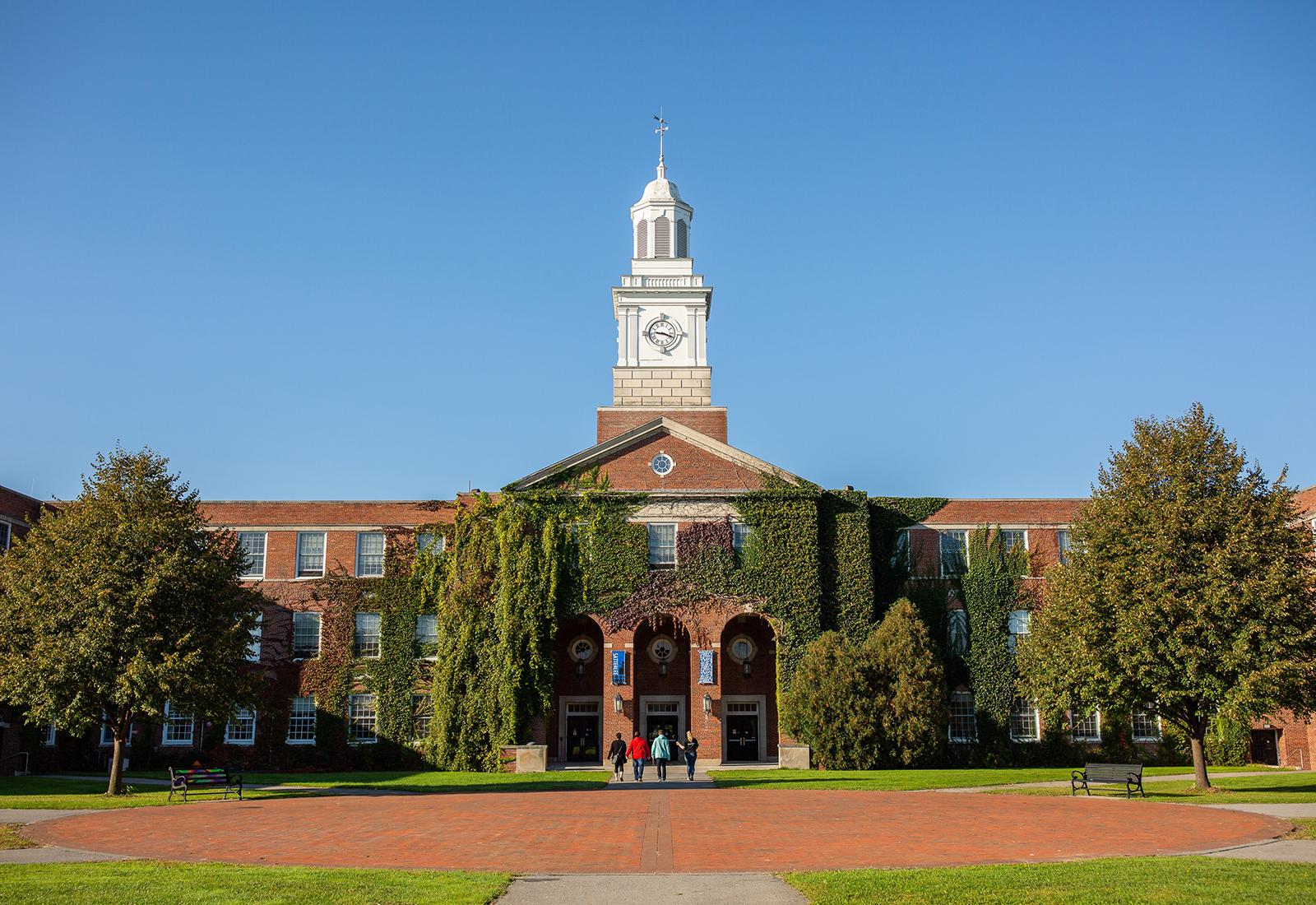Frederick Douglass Flees From Slavery and Becomes a Powerful Speaker Moving Mountains

Born a slave in Tuckahoe, Talbot County, Jap Shore, Maryland, near Hillsborough, Frederick Douglass , at some point emerged as one of the foremost leaders of the abolitionist motion, which fought to end slavery inside of the United States.
He was divided from his mom, Harriet Bailey, when he was however an infant. As she was operating as a slave in a distant plantation. His early existence as a slave was on a plantation in Maryland. When his mother died when Douglass was about 7, Douglass was separated from his grandmother in whose care he experienced been and moved to the Wye Household plantation, where by his action-father, Anthony, labored as overseer of extensive plantations. Below he knowledgeable much of the bitterness of slave existence generally remaining so pinched with hunger that he competed with the puppy for the crumbs falling off from the kitchen area table cloth. When Anthony died, Douglass was given to Lucretia Auld, wife of Thomas Auld who sent Douglass to Baltimore to serve Thomas’ brother, Hugh Auld..
When Douglass was about 12, Hugh Auld’s wife commenced training him the alphabet. Thereafter, Douglass succeeded in understanding to read through from white children in his community, and by observing the writings of the gentlemen with whom he labored. When Hugh Auld found out this, he strongly disapproved, saying that if a slave learned to examine, he would turn out to be dissatisfied with his affliction and need independence. This, Douglass came to describe as the first anti-abolitionist speech he ever heard which stirred substantially urge in him to equip himself well for his education and thence his liberation.
In 1833, Thomas Auld took Douglass back again from his brother soon after a dispute. Not able to place up with Douglas’s rebellious spirit, Thomas Auld then despatched Douglass to function for Edward Covey, a very poor farmer who had a popularity as a “slave-breaker,” for a 12 months to have his spirit tamed. There Douglass was consistently whipped.and was in truth approximately damaged psychologically by his ordeal until finally he last but not least rebelled and fought again. Covey misplaced in this confrontation and never ever tried out to defeat him once more.
Douglass succeeded in escaping on September 3, 1838. He boarded a coach likely to Havre de Grace, Maryland, dressed in a sailor’s uniform and carrying identification papers provided by a no cost black seaman. After crossing the Susquehanna River by ferry at Havre de Grace, he continued by train to Wilmington, Delaware from where he went by steamboat to “Quaker City” – Philadelphia, Pennsylvania. He eventually arrived in New York.
In New Bedford, Massachusetts Douglass joined a black church. He often attended abolitionist conferences. He subscribed to William Lloyd Garrison’s weekly journal, The Liberat. Then in 1841, he listened to Garrison speak at a assembly of the Bristol Anti-Slavery Culture. Douglass was unexpectedly asked to speak. There he told his story fervently contacting for the freedom of the slaves. Douglass was encouraged by Garrison. He was enormously amazed for “no facial area and variety at any time impressed me with these types of sentiments (the hatred of slavery) as did those of William Lloyd Garrison.” This was to start off off his amazing vocation as a lecturer, orator and public speaker. A handful of weeks later, Douglass once again spoke, relating his ordeals as a slave at a grand anti-slavery conference in Nantucket. His convincing narrative electrified the audience so a great deal that Garrison, the following speaker, had to use Douglass’ speech as his text.
Garrison was likewise amazed with Douglass, and wrote of him in The Liberator. Quite a few days afterwards, Douglass sent his 1st speech at the Massachusetts Anti-Slavery Society’s annual conference in Nantucket. 20-a few several years old at the time, Douglass claimed that his legs have been shaking. But he inevitably conquered his nervousness and gave an eloquent speech about his rough existence as a slave.
Douglass just after sustained pressure on him accepted the offer you of starting to be an energetic lecturer for the Massachusetts Anti-Slavery Modern society. He hence settled to commit his entire lifetime to the lead to of abolition and collectively with men and women like Abby Kelly, S.S. Foster, Parker Pillsbury and Garrison himself, he lectured throughout the state. Where ever he toured crowds of persons listened attentively to his tale. At a convention of the Worcester North Division Modern society the associates adopted a resolution welcoming into their midst , Frederick Douglass, a fugitive from slavery, and extending to him the appropriate hand of fellowship as a co-employee in the terrific result in of human redemption…”
Getting an abolitionist activist then was fraught with quite a few hazards. In quite a few communities, hoodlums would be employed to attack ant-slavery speakers and disrupt their meetings. For a Negro, the circumstance would be far even worse, as he could be forced to confront the most humiliating discrimination even though touring, and was the to start with particular person set upon by thugs who would assault a conference crying, “Get the nigger” “eliminate the damn nigger.” Even while Douglass , like other fantastic Negro spokesmen in the Abolitionist motion, achieved these assaults , he continued to convey the message of independence and liberation to the folks while at the similar time conducting a constant battle in opposition to discrimination which he correctly regarded as the direct result of the enslavement of the Negro people.
Douglass’ original tour for the Massachusetts Anti-Slavery Culture was really successful. John Collins was as a result incredibly lavish in his praise of his exemplary performance. He stated that while he experienced not been favored with an instruction his model of speaking was courteous but forceful, his enunciation was distinct and unique, his description of slavery ended up most graphic, his arguments lucid and pleasurable to the ear so considerably so that his addresses however very long were listened to with most profound respect and consideration. This report brought him more engagements as an anti-slavery speaker.
In 1843, Douglass participated in the American Anti-Slavery Society’s Hundred Conventions project, a 6 thirty day period tour of conference halls in the course of the Jap and Midwestern United States. He participated in the Seneca Falls Conference, the birthplace of the American feminist movement, and was a signatory of its Declaration of Sentiments.
Douglas shortly established a popularity as a brilliant speaker. On the ask for of the American Anti-Slavery Modern society Douglass engaged in a lecture tour which brought him recognition as 1 of America’s very first great black speakers. This received him world fame when his autobiography was revealed in 1845.
As a person of the most popular figures, and just one of the most influential lecturers and authors in American background, Douglas’s towering posture showed dignity and power, particularly when speaking, with his strong baritone voice booming out. to keenly listening crowds of listeners. Douglass as a result had a robust existence everywhere you go he appeared.
Douglass spent two yrs in Fantastic Britain and Eire offering numerous lectures, predominantly in Protestant churches or chapels, some “crowded to suffocation,” At his massively well-known London Reception Speech, which Douglass sent at Alexander Fletcher’s Finsbury Chapel in London in May 1846. Douglass remarked that there he was addressed not “as a colour, but as a man.” He also met and befriended the Irish nationalist Daniel O’Connell. In March 1860, Annie, Douglass’ youngest daughter, died in Rochester, New York, though her father was nevertheless in England creating Douglass to slice shorter his speaking engagements and return from England the following month, using the route through Canada to stay away from detection.
He quickly became one particular of the most productive orators of his day, a confidant of the radical abolitionist, John Brown, a militant reformer and a revered diplomat. Douglass’ operate spanned the a long time prior to and for the duration of the Civil War with him conferring with President Abraham Lincoln in 1863 on the procedure of black troopers, and with President Andrew Johnson on the issue of black suffrage.
By the time of the Civil War, Douglass was a person of the most popular black adult men in the country, regarded for his oratories on the ailment of the black race, and other difficulties such as women’s rights.
Douglass and the abolitionists argued that the goal of the war was to stop slavery and that African People in america should be authorized to engage in the fight for their freedom. Douglass gave many speeches declaring his ideas and how the war was in truth for the liberation of the slaves.
On the evening of December 31, 1862, when President Lincoln declared the Emancipation Proclamation, Douglass describes the spirit of all those ready for the announcement: “We were ready and listening as for a bolt from the sky…we had been watching…by the dim mild of the stars for the dawn of a new working day…we had been longing for the remedy to the agonizing prayers of generations.”
Once the slaves were being freed, Douglass also needed equality for his persons as very well. He and Abraham Lincoln worked alongside one another supplying strategies to move the liberated slaves out of the South. Lincoln experienced doubts about the war ever ending, but before long enough the Accomplice forces gave in to the Union and the war to finish slavery was received.
At Abraham Lincoln’s memorial, a tribute to Lincoln becoming offered by a outstanding lawyer. was not as prosperous as some of the viewers there would have hoped, when Douglass was goaded to stand up and discuss. At initially out of respect for the speaker he declined, but inevitably he gave into the force and with no preparing gave a glowing tribute for which he been given substantially regard. The crowd, roused by his speech, gave him a standing ovation. A witness later claimed, “I have listened to Clay communicate and lots of great men, but by no means have I read a speech as amazing as that.” Lincoln’s wife is said to have provided Douglass Lincoln’s favored going for walks stick which nonetheless rests in Douglas’s Cedar Lodge.
Douglas criticized Lincoln’s successors more than what he felt was an insufficiently prompt and just Reconstruction coverage 1 the war experienced been won. Douglas was particularly insistent on the requirement for swift passage of the Fifteenth Amendment guaranteeing suffrage to the freshly emancipated slaves. In no way contented with the grudging authorized concessions the Civil War yielded, Douglas continued to item to every indication of discrimination – no matter whether financial, sexual, lawful or social. He ongoing to discuss out on such issues as the exploitation of black sharecroppers in the South. He went on to desire ant-lynching legislation and to protest the exclusion of blacks from public lodging. He was also energetic in suffrage actions for females, believing firmly in the electrical power of the ballot as one particular of the necessities of liberty.
Douglas’s everyday living has become the heroic paradigm for all oppressed individuals. He is in fact one of the hundreds of independence heroes I saw showcased at the Underground Independence Centre as effectively as many other exhibitions on American Background or Tradition in Washington D.C, San Francisco or anywhere .His profession as a champion of human rights led the way for afterwards black leaders like Booker T. Washington, W.E. B. DuBois and Martin Luther King Jr.
Even further examining
Henry Louis Gates, Jr., ed. Frederick Douglass, Autobiography (Library of America, 1994)
Foner, Philip Sheldon. The Existence and Writings of Frederick Douglass. New York: Intercontinental Publishers, 1950.
Huggins, Nathan Irvin, and Oscar Handlin. Slave and Citizen: The Everyday living of Frederick Douglass. Library of American Biography. Boston: Small, Brown, 1980.
Lampe, Gregory P. Frederick Douglass: Freedom’s Voice,. Rhetoric and Public Affairs Series. East Lansing: Michigan State University Press, 1998. X (on his oratory)
McFeely, William S. Frederick Douglass. New York: Norton, 1991
Quarles, Benjamin. Frederick Douglass. Washington: Connected Publishers, 1948.
Works by Frederick Douglass at Venture Gutenberg
On-line Guides Web page (University of Pennsylvania)
Narrative of the Lifetime of Frederick Douglass at Undertaking Gutenberg.
Audio e-book of The Narrative of the Daily life of Frederick Douglass at FreeAudio.org.
The Heroic Slave at the Documenting the American South web site.
Frederick Douglass Venture at the University of Rochester.
My Bondage and My Flexibility at Project Gutenberg.
Gathered Articles Of Frederick Douglass, A Slave (Project Gutenberg)
Frederick Douglass (American Memory, Library of Congress) Includes timeline.
Timeline of Frederick Douglass and relatives
Frederick Douglas Timeline
Frederick Douglass NHS – Douglass’ Existence
Frederick Douglass NHS – Cedar Hill National Park Assistance website
Frederick Douglass Western New York Suffragists
Mr. Lincoln and Liberty: Frederick Douglass
Mr. Lincoln’s White Dwelling: Frederick Douglass




